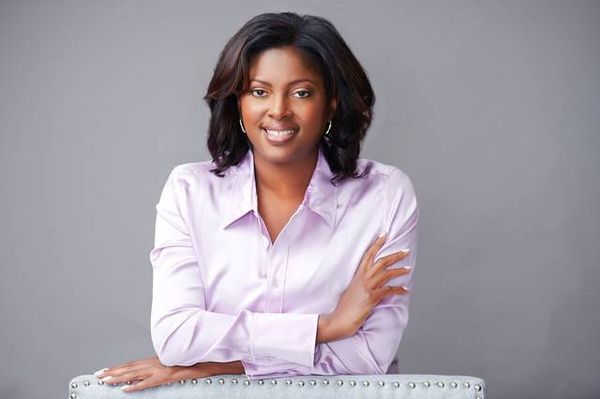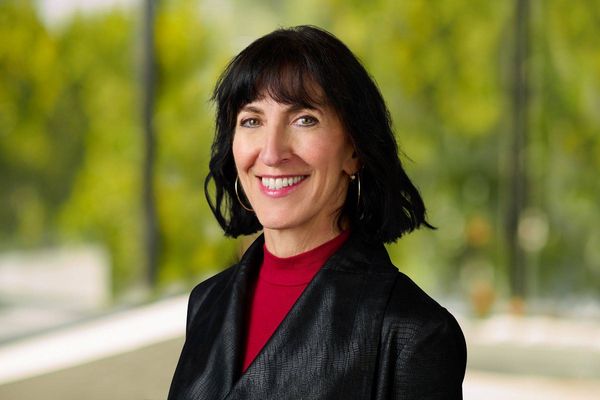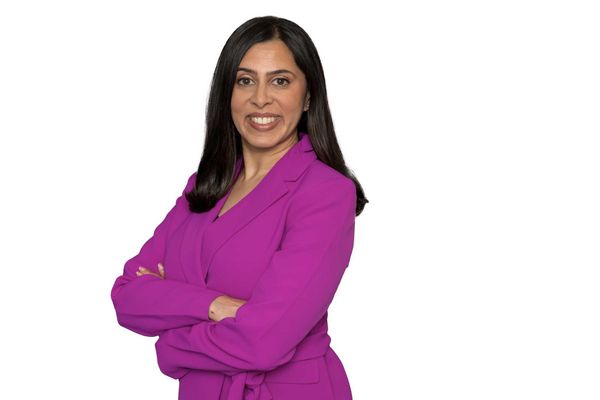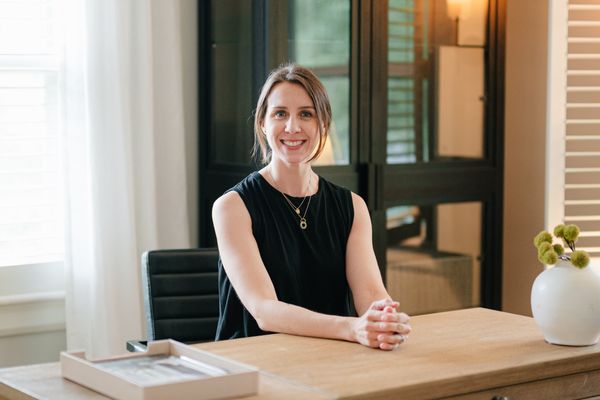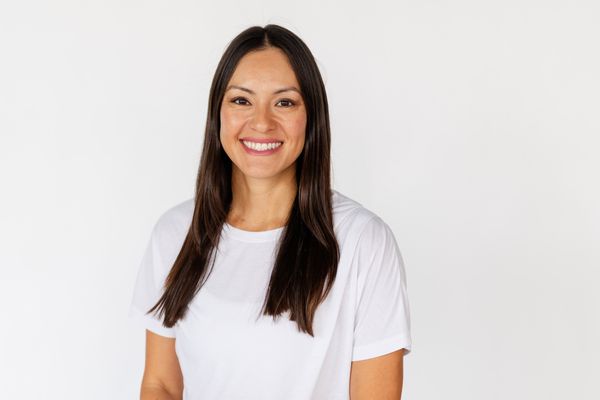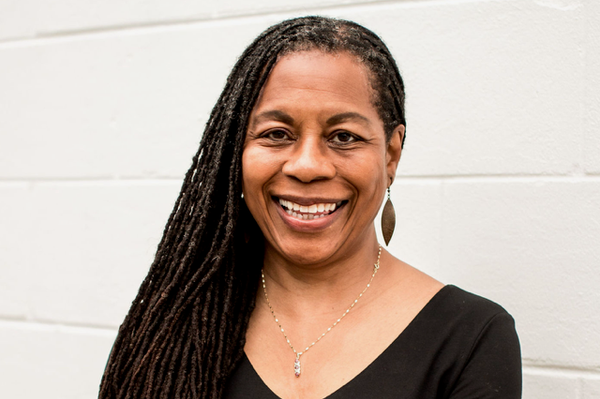In 2019, Emmy-award winning journalist Tamsen Fadal was on air, broadcasting the evening news, when her mind went blank.
The word “subpoena” was up on the teleprompter, but she couldn’t remember how to pronounce it. If you’ve ever watched the news, you know “subpoena” isn’t exactly an uncommon word. It wasn’t like Fadal to flub on air, but it was happening more and more.
Fadal assumed the worst. She thought there must be something seriously wrong with her brain. But it turned out just to be menopause — a topic that was taboo to discuss at that time.
Through research, Fadal learned that millions of people are going through symptoms of menopause at any given time — but no one was talking about it. In 2020, Fadal posted a video on TikTok listing 34 symptoms of menopause, which quickly got more than 1 million views and more comments than she could count.
Fadal knew she wasn’t alone, but the post helped solidify that people wanted information and they wanted to talk about menopause.
The Emmy-award winning journalist went on to be the executive producer of the first documentary film about the challenges women face during menopause, The M Factor. (Look for her new documentary about perimenopause, Before the Pause, in spring 2026.)
Now, her new book, How to Menopause: Take Charge of Your Health, Reclaim Your Life, and Feel Even Better than Before, breaks down perimenopause and menopause and offers expert advice, tips and personal anecdotes to help with a wide range of topics — everything from brain fog to sex to diet to having a career during menopause.
We talked with Fadal about her book and what she wants all women to know about menopause and thriving in midlife.
This interview has been lightly edited for clarity and length.
HealthyWomen: You spent 30 years as a news anchor reporting on stories all over the world before shifting your focus to menopause and women's health in midlife. Tell us why it was important for you to put a spotlight on these topics.
Tamsen Fadal: It was actually personal because it was something that I was going through and I didn’t have any answers. I’ve told so many stories throughout my life over and over again, and this was one that wasn’t on my radar.
I think that’s kind of shocking and it says a lot. The more I dove into learning about menopause, I knew that there was a need for me to understand, and then a need for other women to understand, and because storytelling is everything that I know how to do, that's where it began.
We decided to do a documentary to be able to talk a little bit more about menopause and tell stories — but you can only tell so much in a documentary. So, I started keeping track of everything and I wound up writing the book. And the book expanded because I realized menopause can't just happen inside the doctor’s office. It has to be a lifestyle as well, a complete 360.
HW: You share your personal experiences with symptoms of menopause and not knowing that you were in perimenopause in the book. What do you want women to know about perimenopause that you wish that you’d known during that time?
Fadal: So many things! I wish I knew the definition of perimenopause — that’s the first thing.
I think what's important to know is that there are a lot more symptoms — not just hot flashes. Some of my first signs were anxiety and brain fog and waking up at 3 o’clock in the morning for no reason.
And I want women to also understand that they're going to have their period during this time and it might not be what it was before. It could be irregular.
I think it's important to know that hormones don't just go straight down — they go all over the place. They really fluctuate wildly, so one month you're going to feel like yourself. One month you might not recognize your own moods. And I think that it's important for women to know it's not all in their head.
And finally, there are places to get help, and you have to get that help ahead of time. You don’t have to wait for your symptoms to get so bad and you’re suffering so much, to finally go get help. I think that’s probably my biggest message — you don't have to tough it out. There’s no badge of honor for that.
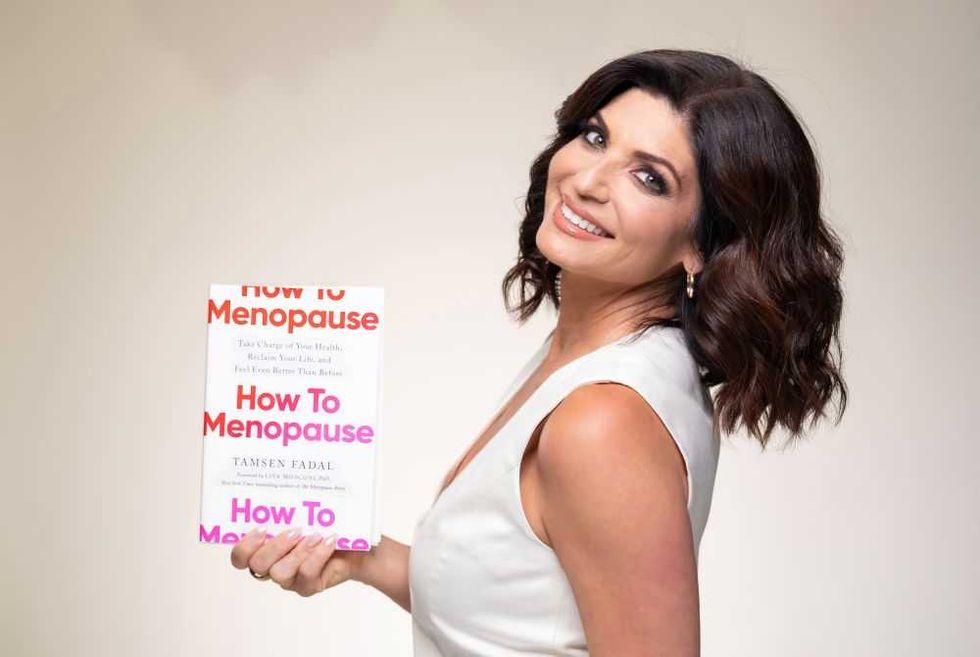
HW: You interviewed 42 experts for your book. What is something you learned from one of them that you found particularly interesting or that you carry with you?
Fadal: I've really carried a couple things with me. The first one is that hormone therapy is safer than most women have been told, and I think that was really an important part.
And then I think that the other big part of it is understanding sleep because I think that's the base of everything — to me, anyway.
Your sleep is going to kind of break up with you during this time. And it’s not your fault. And I think a lot of women blame themselves, like ‘What could I have done to prevent this? How could I have been better so this didn't happen to me?’ And I want women to understand that that's not the case.
Dr. Shelby Harris was great about that with regard to sleep, and with regard to the brain, Dr. Lisa Mosconi is very pivotal in terms of allowing women to know that things can get better, and that you do feel like a better version of yourself after this is over and you've come on the other side. I think that's an important message for women that they don't usually see. They usually see this as an end, and I don't believe it's an end.
HW: As a menopause advocate, you help create policy that addresses the impact of menopause on women in the workplace. Tell us why workplace policies to accommodate menopause are important?
Fadal: A couple of different reasons. I think the first reason is that there are so many women at this age right now that are working and that are at the height of their career. And they've looked forward to this time, worked hard for this time, and they're dealing with a lot of these symptoms all at the same time.
So, it's really important to focus on the workplace. I think it's also important to make sure women aren't penalized during this time because of some of these symptoms. Symptoms like brain fog, fatigue and sleep disruption can directly impact focus and confidence. And without support, a lot of women do things like reduce their hours, step back from leadership or leave the workforce altogether.
It's important to normalize the conversation. Sometimes policy helps signal that menopause is not this taboo topic. We've been taught it's an actual reality. And women in midlife representing a significant portion of the workforce, treating it like a legitimate workplace consideration is really, really important. Look at maternity leave. Look at mental health benefits. There are different ways to develop and adopt change and support menopausal women in the workplace, and it doesn’t have to be all or nothing.
Read: Support for Menopause in the Workplace >>
HW: Your podcast tackles many different women's health issues. Tell us something that you've learned recently from a guest that surprised you.
Fadal: Gosh, there’ve been so many things! One in particular was a conversation about ADHD and menopause that hasn’t even been released yet. It was interesting to see the overlap of those two things and to note that many women have not talked about this combination.
The second thing is the hair/skin connection. Dr. Doris Day came on my podcast talking about hair and skin and menopause, and I don't think I really understood that correlation before. She said she can have somebody come into her office and she can tell just by their skin whether they're in perimenopause.
I thought that was kind of surprising. Some women think they’re just not taking care of their skin, but again, we blame ourselves a lot. I like the conversations that allow women to have answers so they don't feel like it's their fault and something that they didn't do right because I think that that’s the message we've been sold for a long time. If you work harder, it’ll be better.
HW: What do you think is the biggest myth of menopause?
Fadal: There are two. When it comes to the psychological part of menopause, one of the big myths is that it’s the beginning of the end of your sexuality and sex life and feeling confident and great. And I don't think that's true. I think there are some real gifts of menopause, and we see them in terms of women feeling freer than they’ve ever felt before, and excited about what’s next, embracing their wisdom and not trying to act like they're 20 years old anymore.
And the other big myth is hormone therapy. There’s a lot of confusion about hormone therapy due to the flawed WHI study and the headlines that came from that study. I think that has a lot of women confused. So I think that we're really on a path right now to educate, educate, educate.
My number one goal is to figure out ways to tell stories so that women understand what’s going on, and then can find solutions so they're not walking around in the dark trying to figure out where the light switch is.
HW: As a certified integrative nutrition coach, what do you recommend that postmenopausal women incorporate in their diet and why?
Fadal: This is for all women — I definitely think that protein is a big one. It's probably the hardest. You know, we hear about it all the time. I think women are like, ‘How do I even get enough protein?’ So, having a focus on that and having a focus on balance. I'm a big proponent of the Mediterranean diet — it's what I grew up on. It's what I've now gone back to after being on 1,000 different food plans over the course of my life — high carb, low carb, up and down.
But I think that the Mediterranean diet provides stability where you're still eating foods that you like. I don't think food should be punishment — I don't think that we should dread every meal. I think we should look forward to it.
I do think it’s important to make sure you're getting enough vitamin D because bone health is just really something that's critical during this time and your omegas for heart health. The three areas that I focus on now as a postmenopausal woman are brain, heart and bone health — the omegas, vitamin D and protein.
HW: If menopause was a character in a TV show, who would they be?
Fadal: That's a really good question. Let me think for a second … Have you ever watched Schitt’s Creek? I would say Moira because she’s very unpredictable.
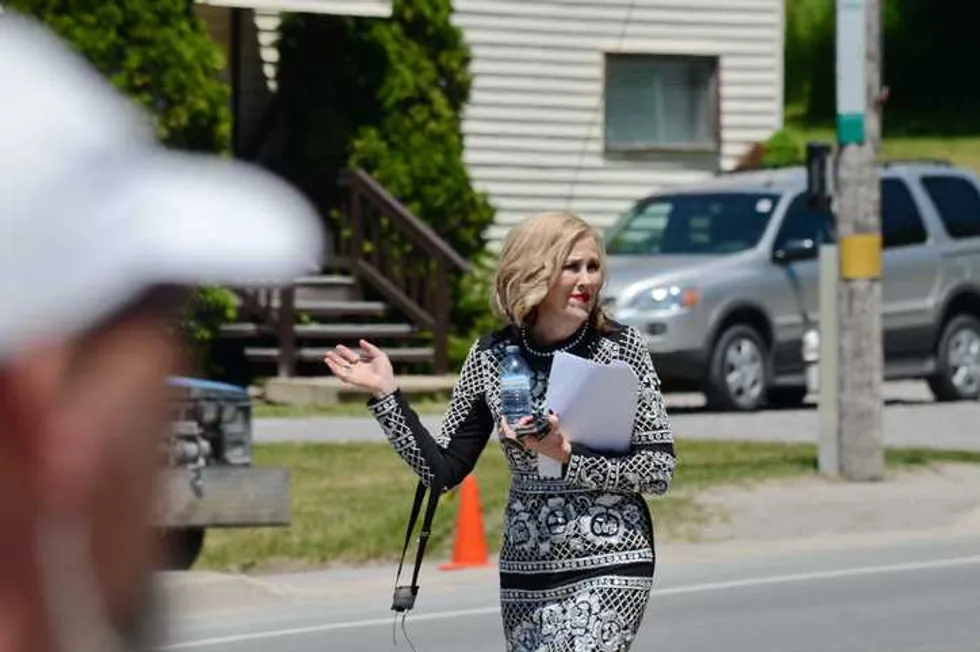
- 5 Hot and Healthy Beach Reads ›
- You & Your BrainA Collaboration of HealthyWomen, Prevention & Women’s Alzheimer’s Movement at Cleveland Clinic ›


